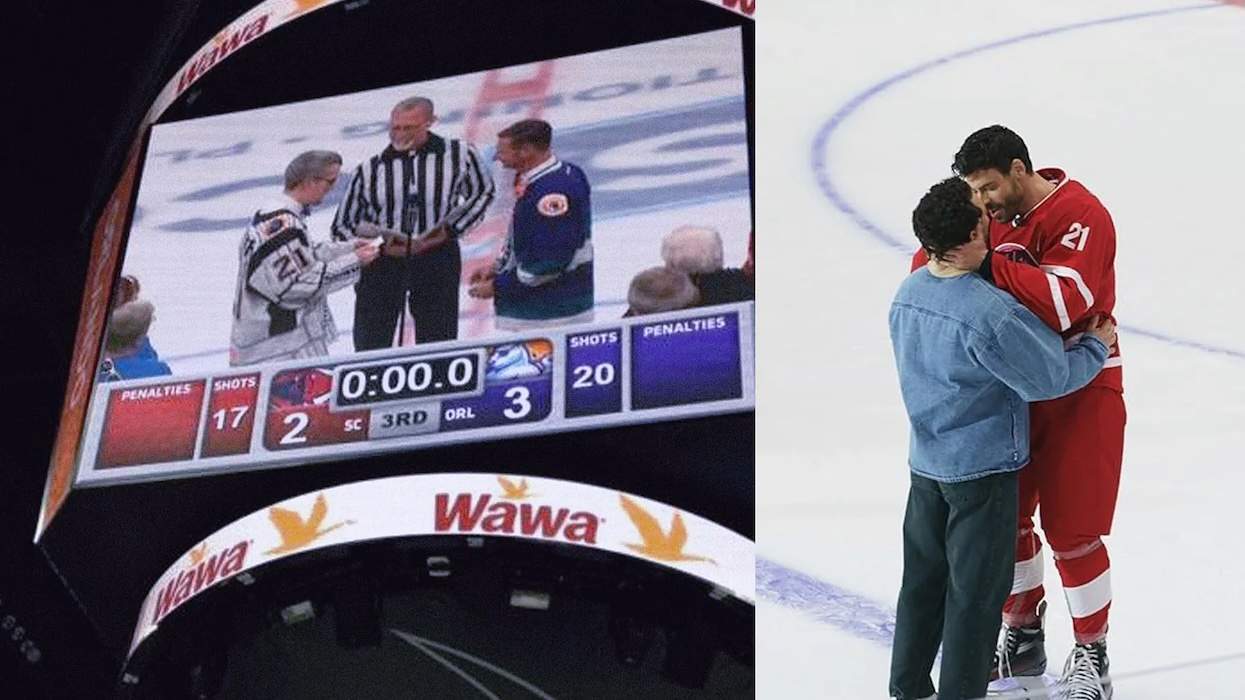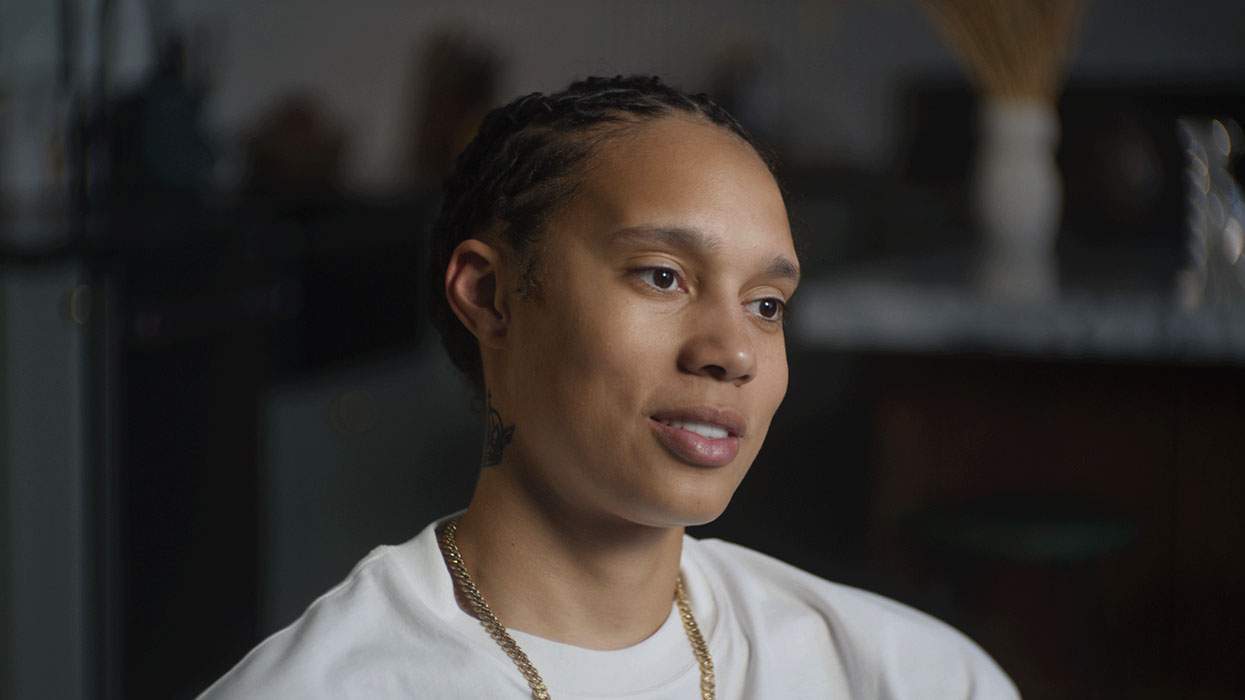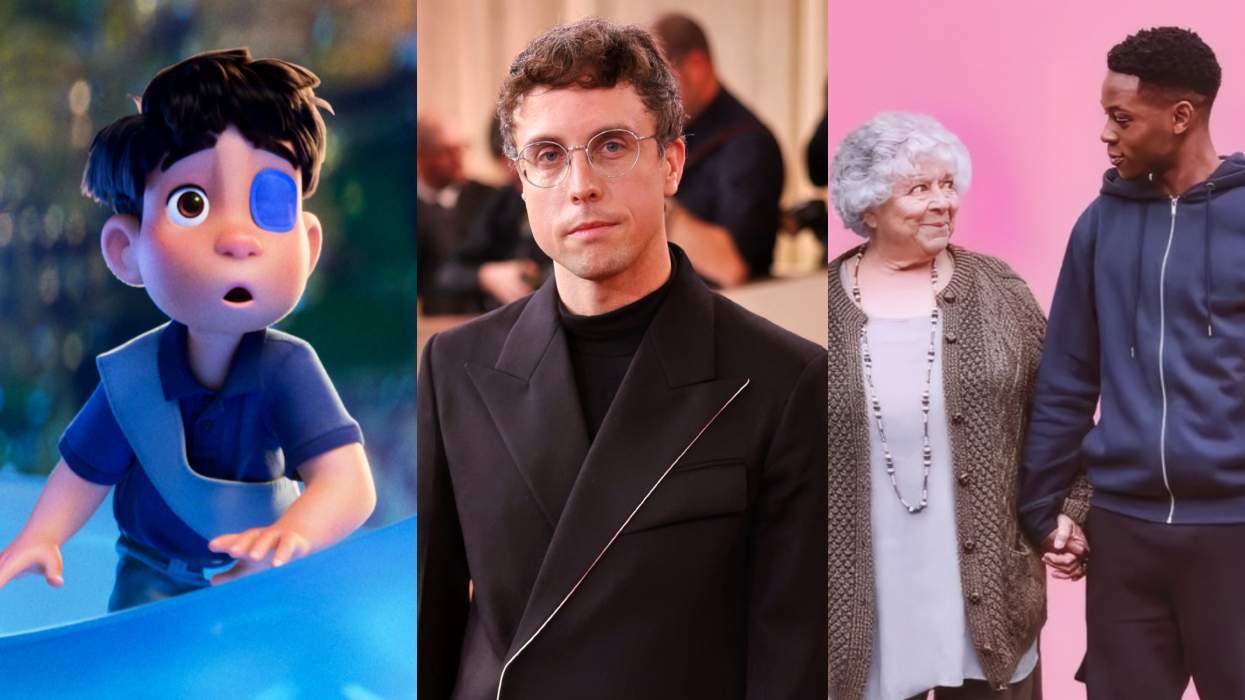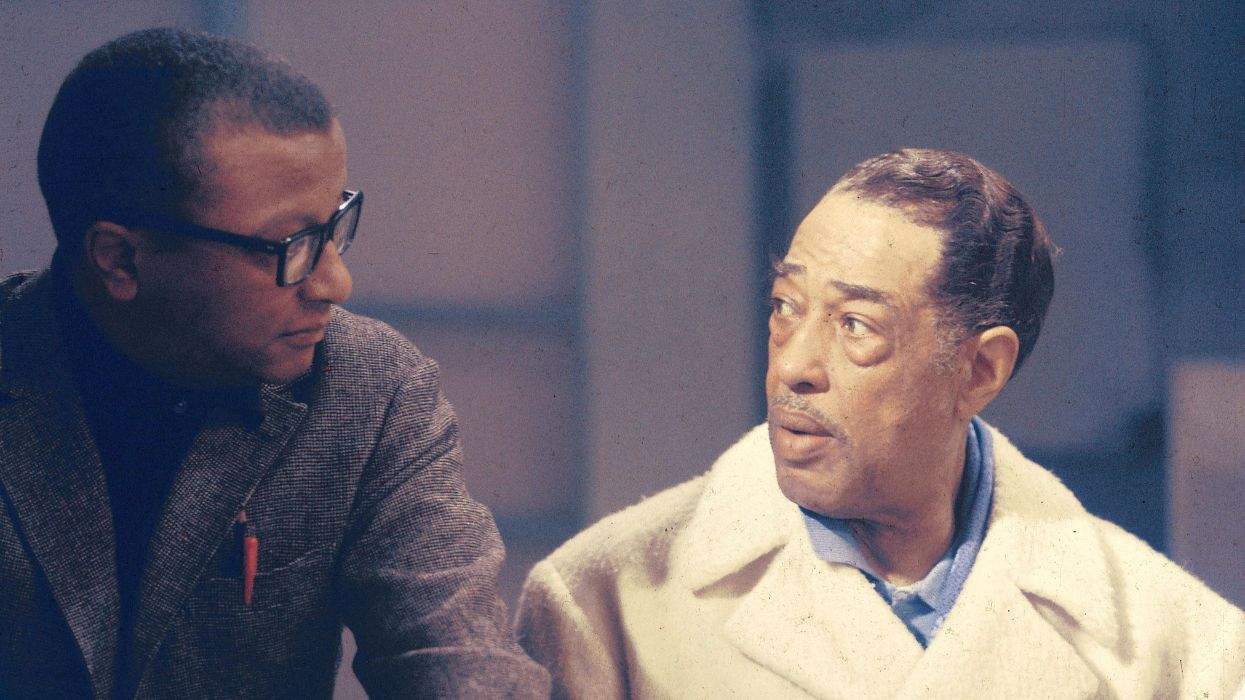Obviously, as journalists, we on The Advocate's editorial staff are word people. Also, the movement we chronicle is well aware of the power of words. As an Advocate copy editor (read: enforcer of language rules) for the past 15 years, I've seen the language we use to describe ourselves and our movement evolve, and a look at our archives reveals even more changes.
Homo History
In the first issue of what was then called The Los Angeles Advocate, in September 1967, an editorial announcing the publication's birth refers to "the homophile community" and says The Advocate will "publish news that is important to the homosexual." Within a year, though, "gay" was replacing "homosexual" in our pages.
The Lesbian Factor
While, in its early years, The Advocate usually referred to gay women as lesbians, it took a while for the magazine to expand its definition of its mission. In 1982 The Advocate began calling itself "The National Gay Newsmagazine." In 1990 that changed to "The National Gay and Lesbian Newsmagazine."
Girl Power
Our archives also reveal some peculiar, and some would say insulting, language in regard to women. A headline from 1970 reads, "Two L.A. Girls Attempt First Legal Gay Marriage." Like the "mainstream" media, The Advocate had to learn from the feminist movement that "girl" was not the proper word for adult females. Though the word was somewhat rehabilitated in the '90s and beyond by terms such as "girl power" and the "riot grrrl" movement, it's still recognized as inappropriate in formal use. We certainly wouldn't call Hillary Clinton a girl.
Rehabbed
Speaking of rehabilitation, the onetime slur "queer" was reclaimed by activist group Queer Nation in the early 1990s. Some people still don't care for it, but we do allow its use in The Advocate. "Dyke," while still not widely accepted, has been reclaimed by Dyke Marches around the nation. But despite the efforts of some (Dan Savage, for one) to take away its power, we still treat "f****t" as a slur.
Transitions
Transgender people have had to fight back against slurs too. In the past year or so, several celebrities have been called out for using the word "tranny." It's also been recognized, even in the general media, that "transvestite," meaning "cross-dresser," is not an appropriate term for transgender people, nor is "drag queen." "Transgender" has replaced "transsexual" as the preferred term over the past couple decades, in recognition that gender is more than anatomy and that not all transgender people undergo transition surgery (which used to be called "sex-reassignment surgery" and is now generally called "gender-reassignment surgery" or "gender-confirmation surgery").
The Alphabet Soup
Likewise, in the past couple of decades, the description of our movement has expanded from "gay and lesbian" to "gay, lesbian, bisexual, and transgender." Or "lesbian, gay, bisexual, and transgender," which was favored by one of our past chief editors, and The Advocate has stuck to that: LGBT, not GLBT. For many lesbians it's a reminder that gay women are not simply a subset of the larger male world but rather their own distinct community of individuals. Of course, many groups advocate for putting less visible groups first (some trans activists use TBLG, for example) and some progressive organizations add a Q (for queer and questioning), I (for intersex), or A (for asexual or allies). Oregon State University's campus resources group uses "LGBTQQIA" to represent "lesbian, gay, bisexual, transgender, queer, questioning, intersex, and allies," but also includes "same-gender-loving, two-spirit, asexual, pansexual, and polyamorous." Phew.
More Changes
Many other things have changed too. We refer to "sexual orientation," not "sexual preference"; the latter was once considered acceptable, but activists eventually recognized that it made it sound like one's sexuality was a choice. In the 1970s our magazine sometimes wrote about gays and lesbians who were "up-front," in the popular parlance of the times; now we generally say someone is "openly gay" or "out." Or we just say "gay." If a person is not open about being gay, we don't describe him or her as such (unlike in some famous Advocate cover stories of the past, we generally try not to out anyone these days -- apart from those doing active harm to LGBTs). But sometimes context dictates usage. We say, for instance, that there are four openly gay members of Congress, as we know there are some closeted ones as well -- we just can't say who.
LGBTQQIA
After 15 years of copy editing The Advocate, you learn -- and unlearn -- a lot.















Charlie Kirk DID say stoning gay people was the 'perfect law' — and these other heinous quotes
These are some of his worst comments about LGBTQ+ people made by Charlie Kirk.